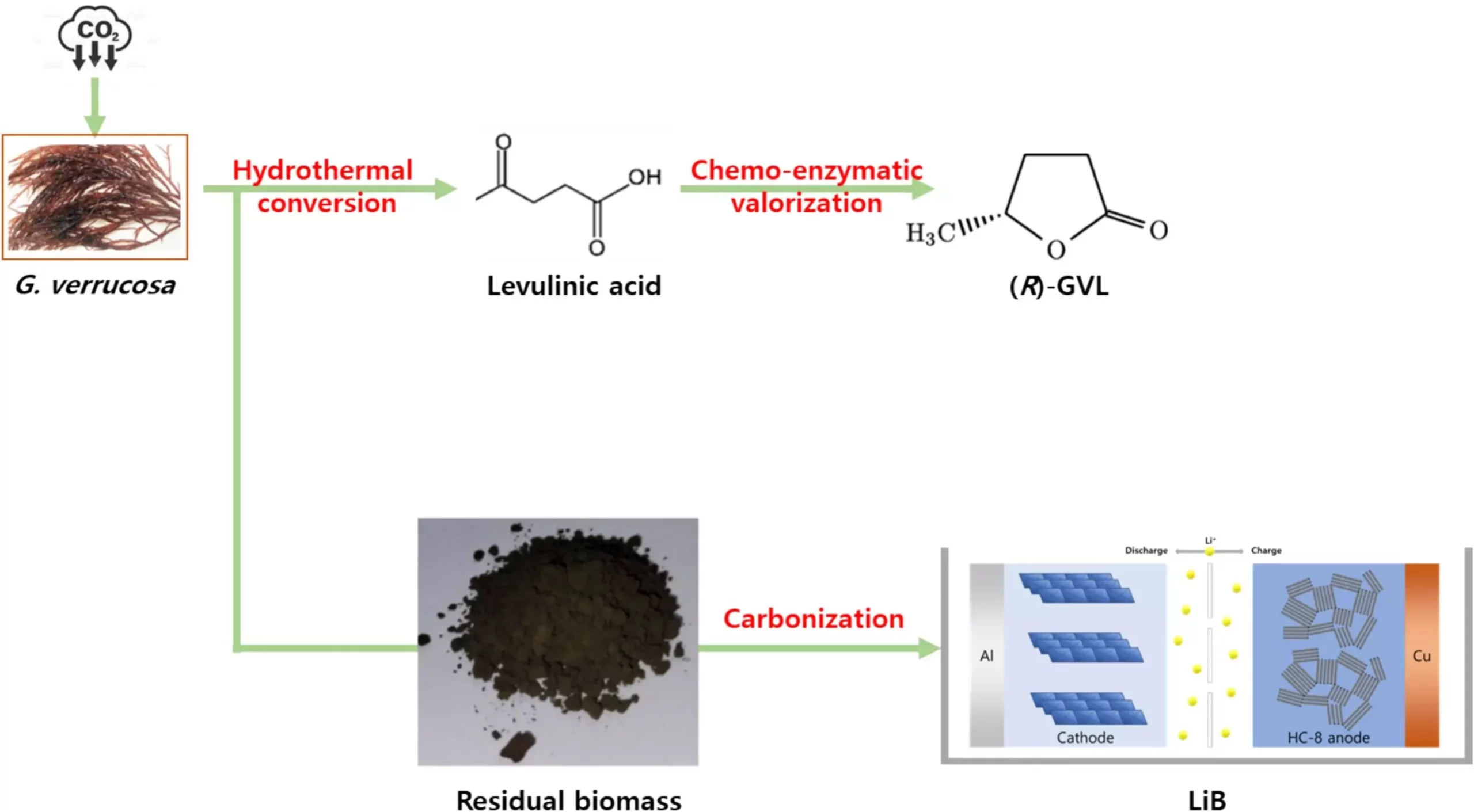Recent advancements in biochemistry and renewable energy technologies have unveiled the significant potential of marine biomass, particularly seaweeds, for revolutionizing energy production. A notable development emerges from the collaborative efforts of Dr. Kyoungseon Min and his research team at the Gwangju Clean Energy Research Center, in conjunction with Kangwon National University. Their groundbreaking research has demonstrated a method for converting common seaweeds, like Kkosiraegi, into valuable precursors for bio-aviation fuels and efficient energy storage systems. This innovative process, detailed in the Chemical Engineering Journal, opens new avenues for reducing our dependence on fossil fuels while also contributing to sustainability initiatives.
Bio-aviation fuel has attracted considerable attention as a renewable alternative to conventional aviation fuel. With the alarming increase in greenhouse gas emissions from the aviation sector, there is an urgent need for eco-friendly solutions. The application of bio-aviation fuel derived from seaweed can potentially lower these emissions by as much as 82%. Projections suggest that by 2070, bio-aviation fuels could represent as much as 35% of the overall aviation fuel market. The implications of this transition could be vast, from environmental improvements to economic opportunities stemming from the sustainable production of energy resources.
Historically, the predominant method used in bio-aviation fuel production has been the sugar-to-jet technology, which involves a complex pre-treatment of biomass to convert it into fermentable sugars. Unfortunately, the traditional fermentation process is not without its challenges. It often requires high-pressure hydrogen, making it both costly and inefficient, with a mere 15% yield from the utilized sugars. Addressing these shortcomings is essential for advancing the commercial viability of bio-aviation fuels.
Dr. Min’s team has made a significant stride by introducing a levulinic acid-based single-step enzymatic reaction for biofuel production. This innovative method stands in stark contrast to traditional microbial fermentation by allowing for a more streamlined and efficient conversion process. By employing a simple acid treatment, Kkosiraegi can be transformed into levulinic acid, which then undergoes an engineered enzymatic reaction to produce the highly sought-after compound (R)-gamma-valerolactone [(R)-GVL]. Importantly, this new approach dramatically enhances the efficiency of precursor production—yielding ten times more precursor than previously established methods.
The potential applications of (R)-GVL are extensive, extending beyond bio-aviation fuel to include essential sectors such as biopharmaceuticals. The precision of this enzymatic process—achieving an impressive over 99.999% accuracy in producing optically pure (R)-GVL—opens doors for its use in pharmaceuticals, particularly in hypertension treatments. Prior to this development, the inability to selectively produce (R)-GVL hindered its practical applications in various industries. With this breakthrough, Dr. Min’s introduction of a tailored enzyme marks a decisive step towards utilizing (R)-GVL in biomedical applications.
The Sustainable Three-Pronged Approach
The research does not stop with transforming seaweed into biofuels. The remaining biomass after levulinic acid extraction is efficiently repurposed as an anode material for lithium-ion batteries. Through a carbonization process, the residual Kkosiraegi can be converted into “hard carbon,” which has shown promising characteristics for battery applications. Preliminary analyses have confirmed the material’s capacity, output, and longevity, suggesting that this dual-purpose approach could make significant contributions to both energy storage and sustainable energy production.
Emphasizing Regional Advantages and Future Prospects
Given Korea’s geographically advantageous position, being surrounded by waters rich in seaweed resources, the implications of this research extend beyond local benefits; they could have global significance. Dr. Min’s assertion about the technological strides in producing value-added materials from abundant marine resources fosters hope for more localized production of renewable energy solutions.
Additionally, the ongoing development of these processes emphasizes a critical shift towards bio-refineries that leverage marine biomass, bringing multiple industrial sectors into a more sustainable practice. As the world faces pressing environmental challenges, innovations like these symbolize a promising move towards more responsible consumption patterns and energy solutions.
This pioneering research not only advances the field of renewable energy but also serves as a template for future innovations that convert biological waste into sustainable resources. The collaboration between academia and industry, underpinned by scientific ingenuity, will be crucial as we navigate the transition to a more sustainable and eco-friendly future.

